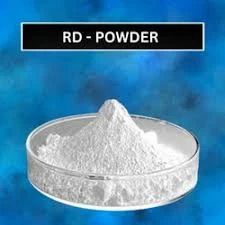
Nov . 11, 2024 05:57 Back to list
Applications and Benefits of Hydroxyethyl Cellulose in Various Industries
The Versatile Uses of Hydroxyethyl Cellulose
Hydroxyethyl cellulose (HEC) is a non-ionic, water-soluble polymer derived from cellulose, a natural polymer obtained from plant cell walls. As a derivative of cellulose, HEC retains many of the beneficial properties of its parent compound while enhancing its usability in various applications. Its unique structure provides numerous functionalities, making it a valuable ingredient across multiple industries.
1. Cosmetic and Personal Care Products
One of the prominent uses of hydroxyethyl cellulose is in the cosmetic and personal care sector. HEC serves as a thickening agent, helping to provide the desired viscosity in creams, lotions, and gels. It enhances texture and stability, allowing products to cling better to the skin and ensuring uniform distribution upon application. Furthermore, HEC is compatible with a variety of active ingredients, making it an ideal choice for skin care formulations. Its water-retaining properties contribute to the moisturizing effects of creams, improving skin hydration and overall feel.
2. Pharmaceutical Applications
HEC is extensively used in the pharmaceutical industry, primarily as a binder, thickener, and stabilizer in liquid and solid dosage forms. In tablets, HEC can improve the flow properties of the powder blend, ensuring uniformity in tablet weight and distribution of active ingredients. In liquid formulations, it acts as a stabilizer, preventing the separation of ingredients and enhancing the product's shelf life. Its biocompatibility and non-toxic nature make HEC suitable for direct contact with bodily tissues, thus finding applications in controlled drug delivery systems where sustained release is essential.
3. Food Industry
hydroxyethyl cellulose uses

In the food industry, hydroxyethyl cellulose acts as a thickener, stabilizer, and emulsifier. It can enhance the texture and mouthfeel of food products, providing a desirable viscosity in sauces, dressings, and dairy products. HEC also helps in maintaining the suspension of solid particles in liquids, which is crucial for products like salad dressings. Additionally, it can serve as a fat replacer in low-calorie foods, contributing to the preservation of moisture while reducing overall fat content. Its use in food products is considered safe, meeting the regulatory standards set by food safety authorities.
4. Construction Materials
The construction industry benefits from HEC's water retention and thickening properties. It is commonly used in mortars, plasters, and tile adhesives, where it helps improve workability and adhesion. By retaining water, HEC ensures that cement and other materials achieve optimal hydration during the curing process, which is crucial for the strength and durability of construction materials. The use of HEC in these applications not only enhances the performance but also prolongs the pot life of mixtures, allowing for longer working times.
5. Paints and Coatings
In paints and coatings, hydroxyethyl cellulose serves as a rheology modifier, controlling the viscosity and flow properties of the product. It helps to prevent the sedimentation of pigments, ensuring even color distribution and consistency. Additionally, HEC contributes to the film-forming properties of coatings, enhancing their durability and resistance to environmental factors. Its role in improving the application characteristics and finish quality makes it a popular choice among manufacturers.
Conclusion
In summary, hydroxyethyl cellulose is a multifaceted compound with diverse applications across various industries. From cosmetics to food and construction materials, its properties such as thickening, stabilizing, and emulsifying make it an invaluable ingredient in product formulation. As industries continue to innovate and seek more effective solutions, the demand for versatile substances like hydroxyethyl cellulose is likely to grow. Its ability to combine functionality with safety ensures that HEC will remain a staple in various formulations for years to come. Whether enhancing the texture of personal care products or improving the performance of construction materials, HEC exemplifies the potential of natural derivatives in modern applications.
-
Versatile Hpmc Uses in Different Industries
NewsJun.19,2025
-
Redispersible Powder's Role in Enhancing Durability of Construction Products
NewsJun.19,2025
-
Hydroxyethyl Cellulose Applications Driving Green Industrial Processes
NewsJun.19,2025
-
Exploring Different Redispersible Polymer Powder
NewsJun.19,2025
-
Choosing the Right Mortar Bonding Agent
NewsJun.19,2025
-
Applications and Significance of China Hpmc in Modern Industries
NewsJun.19,2025







